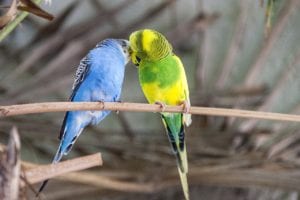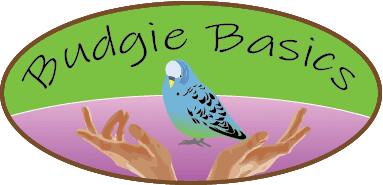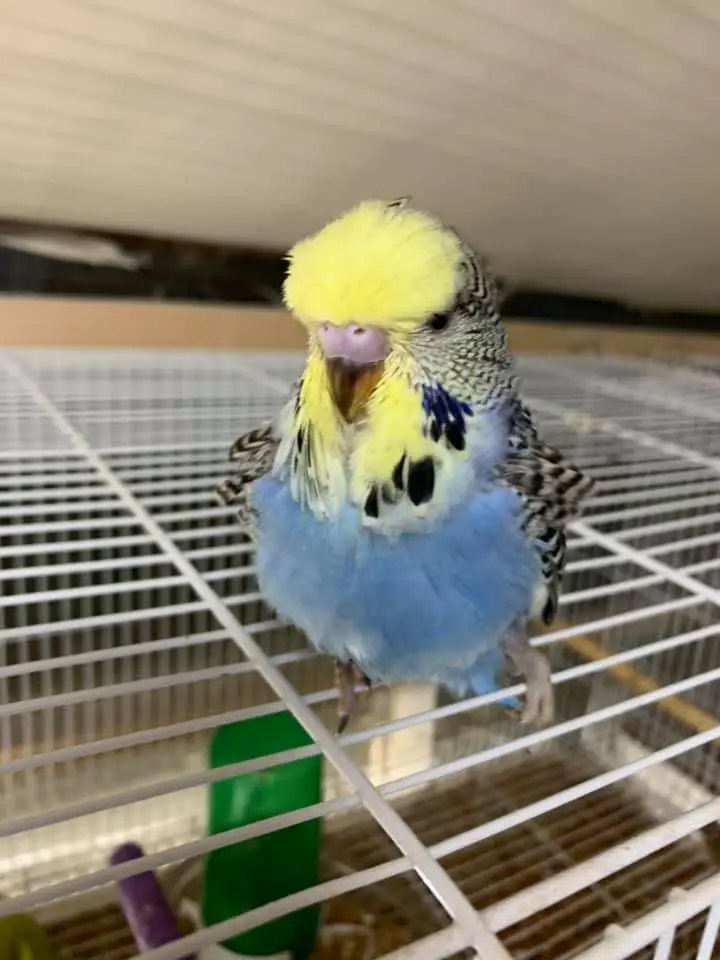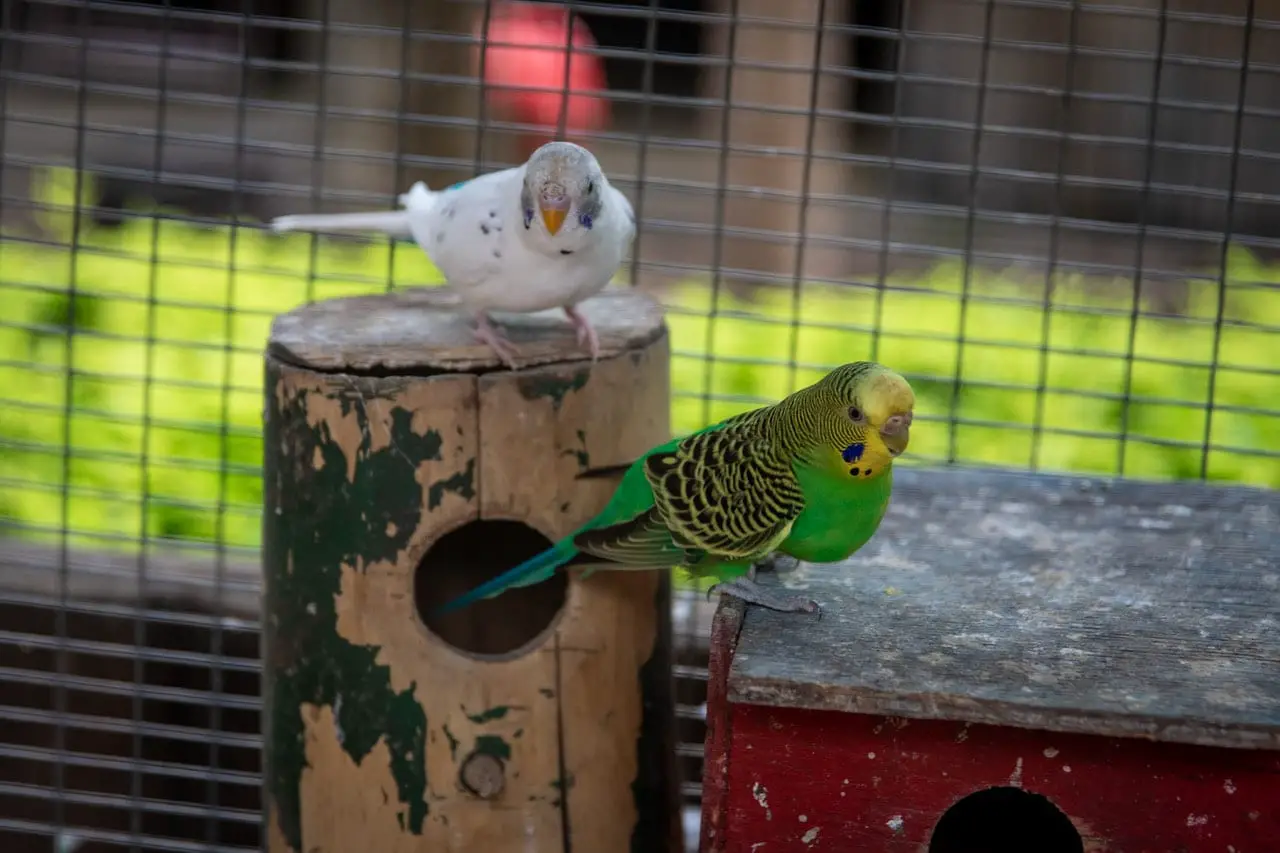As a budgie breeder, hobbyist or professional nothing is more exciting than when a new batch of chicks has hatched. If it is the first time you have successfully hatched chicks congratulations! The question now is when do budgie chicks leave the nest.
For the first few weeks of a budgie chick’s life, they are very vulnerable and completely dependent on their parents for survival. It will be a number of months before budgie chicks are ready to leave the nest.
Budgies are born pretty much featherless, after seven days they have the strength to hold their heads up. At around 10 days budgies chicks will be covered in a soft covering of feather down. About 14 days they will grow their “pin feathers” a coarse pin-like feather coating that will soon “bloom” into a fully developed and fully-fledged budgerigar feather coat.
Various Stages of Budgie Chick Development.
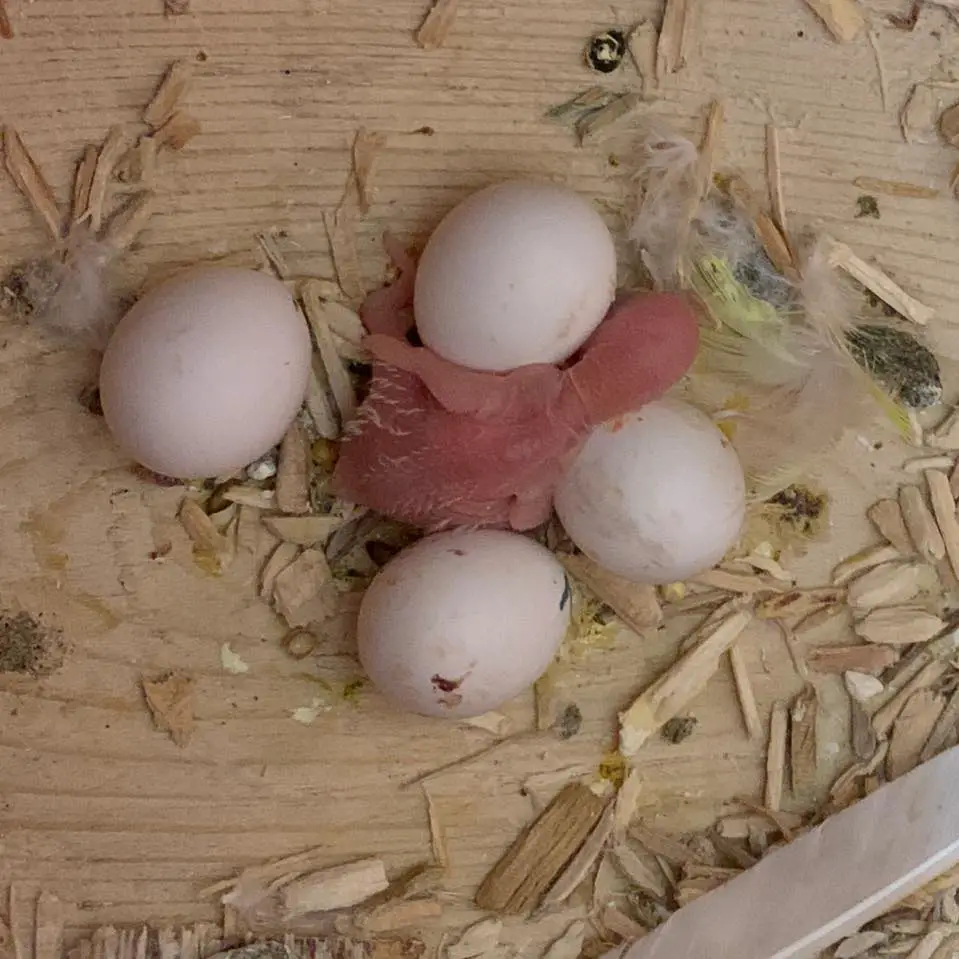

A newly hatched budgie chick.
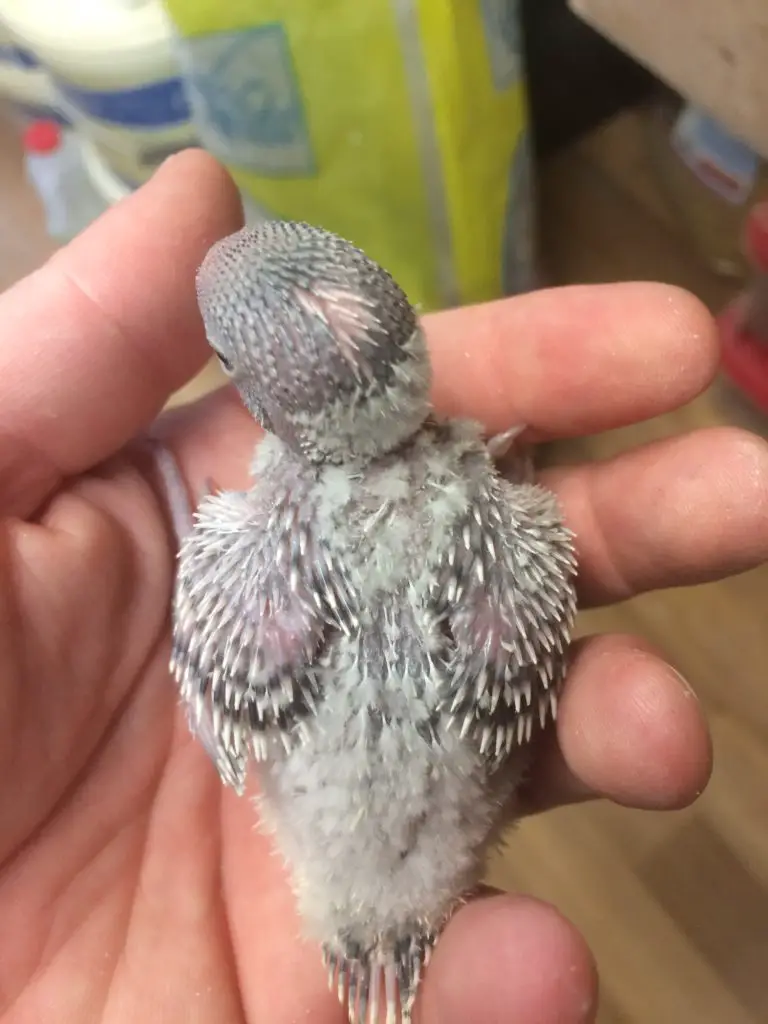

Pin Feathers starting to emerge.
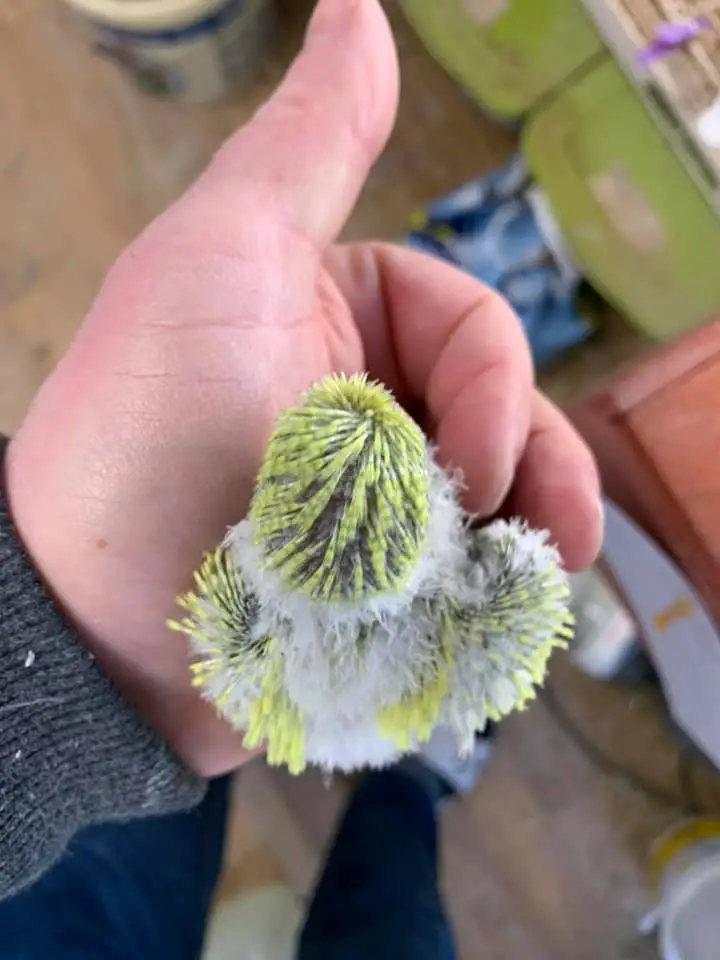

Pin feathers developing and starting to show colour.
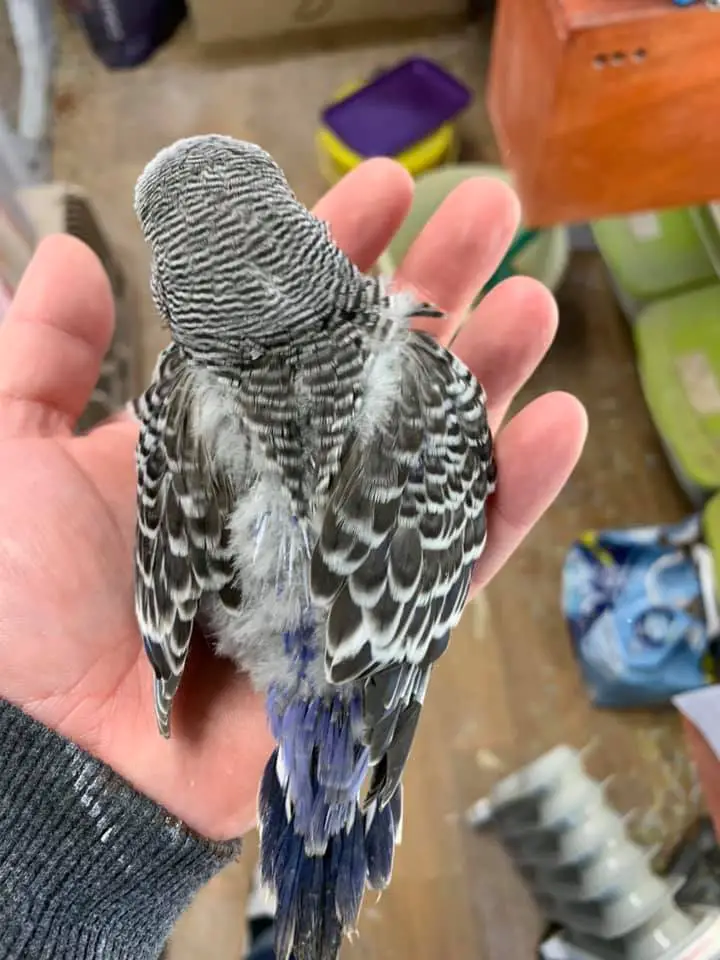

Young Budgie beginning to get its adult plume.
It is at this point you can see what colourings your new baby budgies chicks have. At 30 – 40 days the chicks will have fully developed feathers and be ready to start taking short trips outside the nest.
Even after budgie chicks leave the nest they still depend on their parents for food and care. It will be around 9 months before a budgie chick is fully independent and could survive without its Mum and Dad.
What Things to Watch Out For in Newly Hatched Budgie Chicks.
Once the budgie chicks have hatched the mother will gather up the eggshells and either eat them for calcium, or she will just push them out of the nest. She does this to make a clean environment for her chicks. Budgerigars are great parents, a mother with the help of the father budgie will usually provide all the care needed right up until the budgie chicks leave the nest.
However, it is recommended that when budgie chicks hatch you keep an eye out for a few things. You may be nervous about handling the tiny pink baby chicks. Don’t be too concerned budgie chicks are incredibly tolerant. Just so long as you don’t overhandle them you will be okay.
The best time to check the chicks is when the mother and father have left the nest. They will usually leave the nest in the morning and evening to search for food. Use the time they are out of the nest to check the chicks. Be gentle but don’t be afraid to pick them up and inspect them.
As well as checking the babies for noticeable deformities, check the nesting area for broken eggs, spiders, mites, or other insects and keep an eye out for signs of rodents, as mice and rats can kill budgie chicks.
The best cheap bedding materials for nesting boxes.
In the first 24 hours, you should inspect them closely and look for signs they are being fed properly.
To check if the newly hatched babies are getting enough food you can check what is known
as the crop. This is a small yellowish area at the base of the neck. If you can see the crop is full then you know the budgies are getting food and all is
good.
If the crop is empty then the budgie chick may not be getting adequate food from its parents. This can be for a number of reasons but it is often that the chick is at the rear of the nest and the first few chicks get fed first.
If this is the case, try moving the baby chick to the front of the nesting box, where the mum is more likely to notice and pay attention to it.
If this fails after 24 hours then you may have to resort to hand feeding, read on to find out more about hand-feeding baby budgie chicks.
Common Risks to Newly Hatched Budgie Chicks
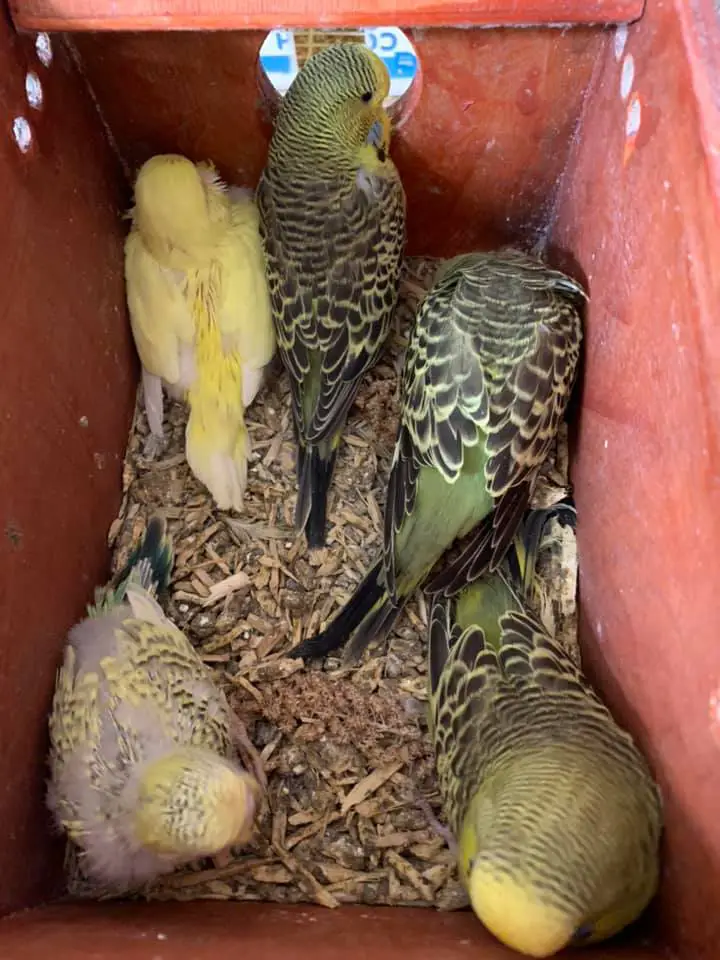

In the first few weeks well before budgie chicks leave the nest the cock bird is responsible for gathering and feeding the hen bird. In turn, the hen will feed the chicks.
So the first risk is that the cock bird loses interest and stops gathering for the mother bird. This is why it is important to pair your budgies properly, reducing the risk of “Budgie domestics” after the chicks have hatched.
Baby budgies are very susceptible to temperature change, they do not have the body
mass to copy with hot or cold. The ideal
temperature for a baby budgie is 36.5C usually the mother will keep their young
warm but if the ambient air is too cold she may struggle.
Budgie chicks do not have a fully
developed immune system and are prone to getting infections. Ensure that the nesting box is kept clean and both food and water are replenished regularly.
Keeping the nesting box clean and free of excrement makes it easy to notice if the excrement has become watery, showing signs of illness. Take special care to check your chick’s feet are clean. If you notice them getting “caked”
in poop, clean it off immediately.
Allowing poop to build up it can lead to serious health issues that would require professional care to remedy.
Is It Okay To Hand Feed Baby Budgies?
Have you wondered if you should hand feed your budgies until they are ready to leave the nest? Many people think this can help tame the budgies from a very young age, but it is highly advised against.
Not only is it a lot of hassle and very time-consuming, but it is also of no benefit to the baby budgies. Unless you are experienced and confidently know what you are doing, hand-feeding baby budgie chicks is a bad idea.
More often than not hand-feeding budgie chicks will result in you having sick or even dead birds.
A mother hen budgie will feed budgie chicks a feed of milky porridge. This is known as hen’s crop or commonly referred to as budgie milk. It is a highly nutritious blend of nutrients and antibodies that not only nourishes the young budgie chicks, it also provides them with a huge immune boost. You could compare it to colostrum that mammals produce for their young.
Hen budgies can adjust the consistency of the “budgie milk” depending on the requirement of the chicks at the time. We simply can not give a budgie chick the same high quality of food that its mother hen can.
So it is always best to leave the chicks in the nest and let the mother budgie feed her young.
Be patient, soon the budgie chicks will leave the nest and you will be able to start interacting with them more. Enjoy the next few weeks watching your hen nurture her young, it is really great to watch.
Sometimes due to unfortunate circumstances, it may be necessary to hand feed a budgie chick. This can be due to a hen rejecting her young, or the hen may die unexpectedly. In these circumstances, hand feeding may be the only option.
Supplements to Give Budgie Parents Before Budgie Chicks Leave the Nest
To ensure when your budgie chicks leave the nest as strong and healthy as possible you want to make sure they have been given a healthy diet full of all the nutrients they require.
Calcium is an important nutrient for a growing budgie chick. There are a number of calcium supplements that you can add to food. Calcium will help develop thick strong feathers.
Unruffled Rx Bird Calcium, Magnesium, and Vitamin D is a high-quality supplement that I recommend giving your budgies from an early stage to ensure strong healthy development.
Protein is important for developing muscles in young birds. Many breeders will use home supplements such as boiled egg or tuna. Personally, I think that sticking close to the natural diet of a budgie is a better idea.
In the wild Budgies migrate, foraging on a huge range of grass seeds and tree seeds. They are able to get all their protein requirements from these seeds.
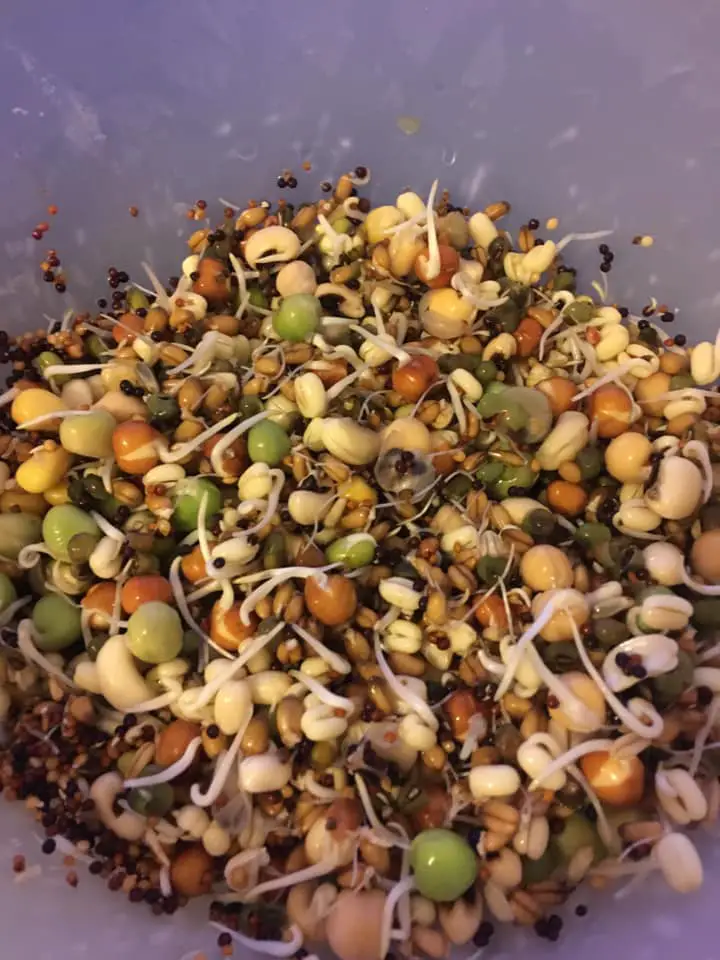

Use a mix of sprouted beans, hemp seeds, chia, rye, barley, wild grasses and a few nuts to ensure the babies get enough nutrients while they are still young and not able to leave the nest in search of food themselves.
And, if you have questions why not send us a message through our facebook page fb.me/BudgieBasics We would love for you to share your pictures and stories on the page too.
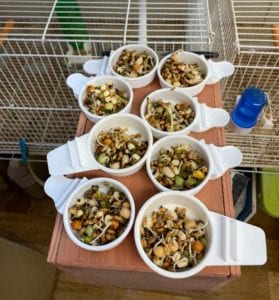

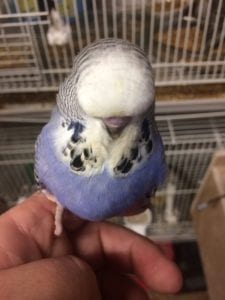

How to Introduce a New Budgie to The Flock in 7 Easy Steps
